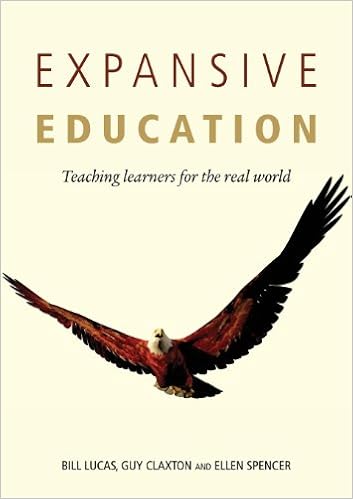The main theme I'm getting out of it is the need for a 'whole' education. School is not just about the content, but learning about being a person too. This includes knowing how to behave when we don't know the answers.
The early chapters in the book has referred to the Theory of Mind a bit. This was a concept I knew about, but needed a little more context before I could continue reading. I found this little video helpful.
My other keys points:
- students to need to be self evaluative
- willpower is like a mental muscle that can be strengthened (or depleted through non-use) and likewise resilience, concentration, imagination and collaboration can be coached and cultivated
- Expansive Education see 'skills' grow into strong 'dispositions'
- three attitudes as elements of a 21st century mindset: communal virtues (honesty, trustworthiness, kindness, tolerance, empathy), virtues of self regulation (patience, self discipline, tolerance of frustration/disappointment) and epistemic/learning virtues (determination, curiosity, creativity and collaboration)
- of course, all these things interweave and even sometimes conflict each other. Balance is key
- John Dewey was ahead of his time, "the teacher becomes a partner in the learning process, guiding students to independently discover meaning."
- learned helplessness arises in students who not not given the opportunity to think of intelligence expansively. They lack resilience and resourcefulness.
- successful intelligence is to think in three different ways: analytically, creatively and practically.
- approaches (such as Building Learning Power) do not work if they are simply bolted on to another restrictive approach.
- using colours to highlight mistakes (and not fixing them for a student) means the student does the thinking about it and how to fix it - building a discussion around 'good' and 'silly' mistakes. This has created a greater feeling of playfulness and adventure in their writing
- interesting analogy: Children sitting around like baby birds with their mouths open, ready for the teacher to bring them the worms - we need to teach them to get their own worms. Learning isn't just an outcome, it's a process.
- re-defining pedagogy - should we more often be referring to it as 'Instructional Design'
- a teachers main task is to notice the impact of their teaching on students' learning and achievement. They need to talk less and listen more
- we need to be so careful with our use of the word ability - it is easy for it to become a synonym for 'talent' or 'intelligence'. Create learning groups that are genuinely fluid and regularly changed
- getting into a state of flow is an optimal learning experience. There needs to be three things for this to happen: task is sufficiently demanding and engaging, learner has enough skill to tackle the task, and time.
- talking about learning is good. If learners see what is going on as they are learning, the better they will be able to apply it to different contexts
What if education were less concerned with the end-of-year exam and more concerned with who students become as a result of their schooling? What if we viewed smartness as a goal that students can work toward rather that as something they either have or don't?
-Ron Ritchhart
The book also covers the significance of others in the learning environment. "Little or no learning will take place unless the learning environment is trustful and the others who are significant to the learner (parents, teachers, coaches, etc.) model the desired outcomes."
This is backed up with other key points:
- Hattie says helping students to develop habits (curiosity and collaboration) works better when teachers model these
- culture is set by the leaders of the institution and what is around in the environment, even before the teacher walks in
- it is essential that teachers develop and share a common language of learning with students and the parents/community.
- thoughtful environments encourage a focus on big ideas. The learning offered in them captures the interest of students and provides them with some degree of autonomy and choice
- we have to expand staffrooms, as well as classrooms, and consider how teachers are trained and subsequently developed.
- new teachers become socialised by 'old-timers' into semi-conscious views and habits. "For expansive educators, it is vital that the community of practice of a staffroom is also a living, evolving community of enquiry."
- Hattie makes explicit connections between teachers undertaking professional enquiry and the benefits that transfer to student learning.
"A teacher can never truly teach unless she is learning herself. A lamp can never light another flame unless it continues to burn its own flame."
-Rabindranath Tagore
These last few points made connections to another video I watched today. This is Kath Murdoch and her thoughts on teachers can (or can't) teach inquiry.
All of this together basically says to me that a good teacher is prepared to, and will, let go of control.
One final thought:
Education has to change. It has to engage the energies and intelligence of all young people. It has to respond to their anxieties about the future, and to help them develop the mental, emotional and social equipment they will need to thrive in a complex, challenging and exciting world. Here's hoping, as David Price says, that the seeds of Expansive Education that we have explored in this book will continue to germinate strongly and to populate the earth!
- Claxton, Lucas and Spencer (Expansive Education authors)



No comments:
Post a Comment